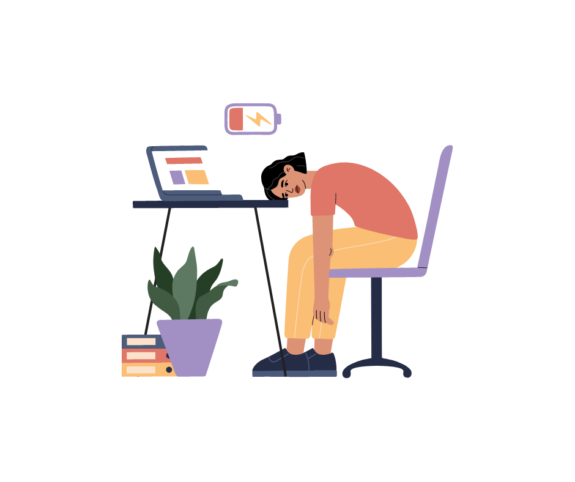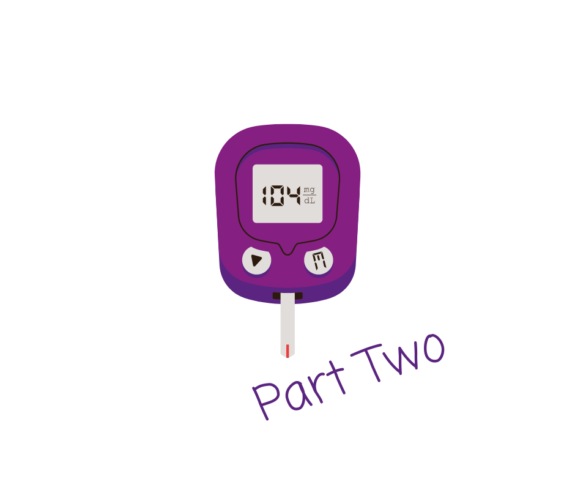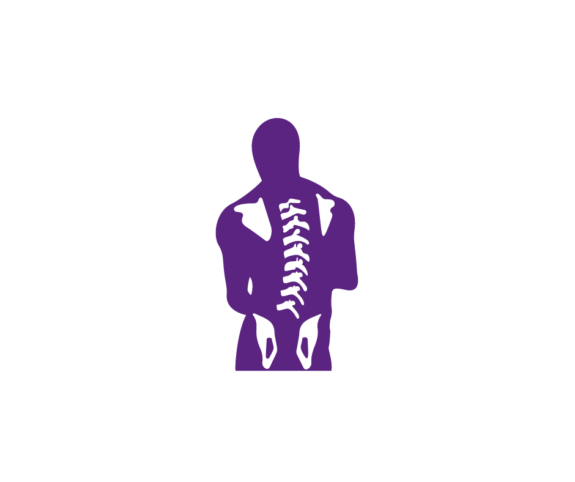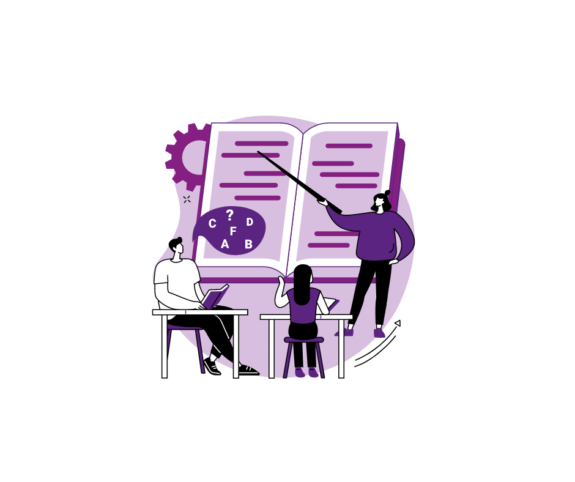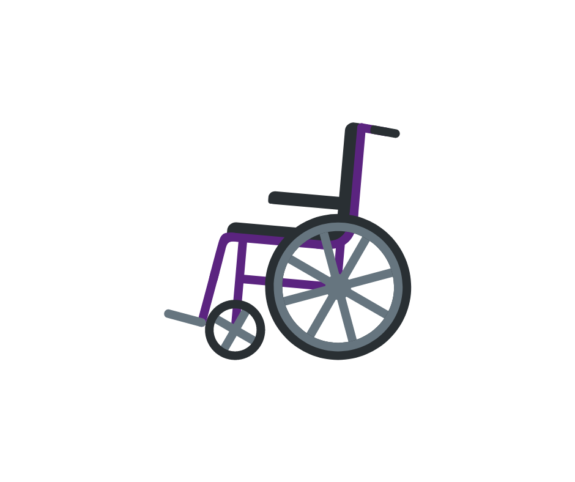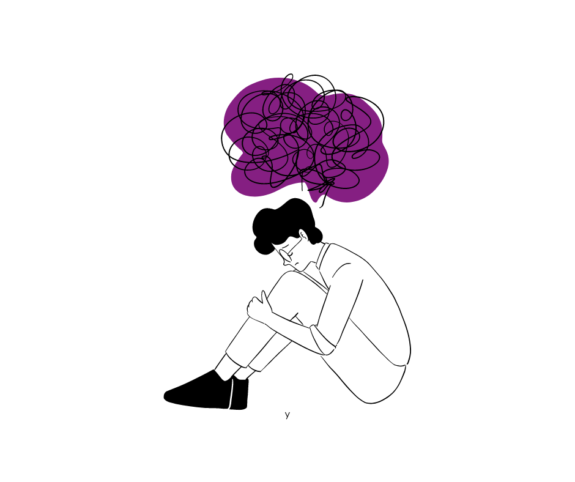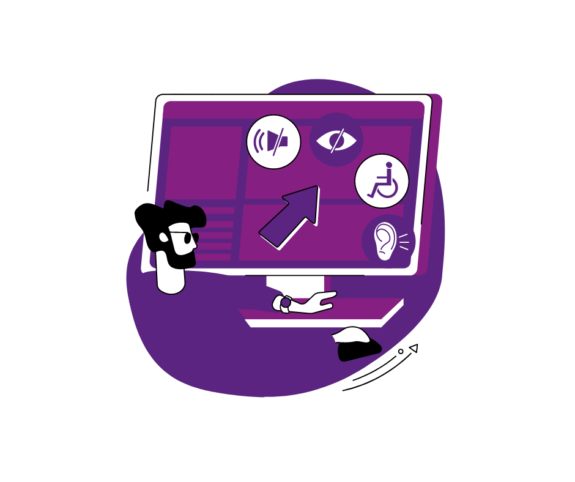This can be from a job or from being in a situation that is physically and emotionally draining. There are signs however and if we know what they are, we can take notice of when they’re happening and try and prevent them.
Fatigue is a common symptom and can manifest in different ways. You may feel like sleeping all the time or that you can’t sleep at all. It may feel that no matter how much you sleep you still feel tired or drained most of the time. Fatigue can then impact other things including concentration, focus or ability to complete tasks.
Emotional feelings of helplessness, feeling defeated or even trapped can affect some people and like with fatigue, can manifest differently in different people. For some, the helplessness can cause them to appear depressed or apathetic with a feeling of detachment or being alone in the world, wondering ‘what is the point of anything’. Others can lash out, being quick to anger with heightened emotions. They can also become quite stubborn and unwilling to listen to others or accept any help that is offered.
Feeling negative all of the time or having a cynical outlook. This can bleed over into all aspects of someone’s life, both at home and at work and can have a significant effect on the ability to complete tasks. It can also cause self-doubt about anything and everything, making you second guess yourself all the time.
Procrastination is a big symptom, especially if this is out of character. By it’s nature, procrastination is an avoidance tactic, whatever the reasons are. With burnout, the reasons could be feeling overwhelmed or unable to cope with the task. It could be inability to think clearly because your head is full of cotton wool because you’re so tired. It could simply be a complete lack of energy or motivation. Whatever it is, it’s not good.
Physical ailments can take root such as headaches, stomach issues, shortness of breath and the aforementioned sleep problems, all of which culminate in your body not working as well as it should. Wounds can take longer to heal. Relatively minor illnesses like colds and coughs have a longer recovery time because your body is, for want of a better word, completely burnt out.
What are the causes of burnout?
Burnout was first used to describe overworked healthcare workers, but has since been expanded to recognise everyone. However, work is still the main culprit with 1 in 5 workers in the UK saying they felt unable to manage their stress levels at work, with a high percentage of these being women. These women also identified that there was a number of potential factors including job security, responsibilities in the home and the added pressures of home schooling children (thanks to the pandemic). Financial worries were also high on the list.
None of this means that women are less capable, but is more of a reflection of the societal perception that unfortunately still prevails, that women are less capable than men. The need and desire to be seen as just as competent is what can cause the added pressure. Times are changing, but we’re not there yet.
Worryingly, only 23% of those people surveyed said they were aware what plans their employers had in place to address burnout. So is this a case of employers not having strategies in place or not communicating these effectively to their employees? People suffering from burnout are more likely to have health problems, take sick days or need to visit A&E. They are also much less likely to have confidence in their job performance, ask for help and are three times more likely to leave. It’s in the employer’s best interest to be aware of the causes of burnout and have plans in place to combat these. Happy workers are both more productive and more efficient.
Are depression and burnout the same?
Simple answer, is no. They share common symptoms, but they aren’t the same. Burnout is usually tied to a situation. Improve or change the situation and the burnout can go away. Depression is more deep-rooted and isn’t necessarily a response to a singular trigger. For example, if you were to go on holiday your depression would still be there with you, but your symptoms of burnout should ease once you’re removed from the situation. Burnout can lead to depression though if no action is taken to improve it.
What is Disability Burnout?
Disability burnout is exactly the same really being, “a state of physical and emotional exhaustion”, but the cause is very different. It’s not situational. It’s not a job or a difficult home life (although these can be factors). The cause is the disability itself. Trying to navigate a world that isn’t built for those with disabilities while coping with the disability is absolutely exhausting.
The symptoms are the same, but the effects on physical health can exacerbate existing conditions and create co-morbidity, for example, clinical depression or anxiety along with whatever disability or health condition is already there.
As we’ve noted in previous blogs, people with disabilities are often regarded as less capable or less able to work which, unfortunately, has a massive effect on mental and physical health. They can feel the need to work twice as hard to be seen as just as capable, which for many is incredibly detrimental.
For those with hidden disabilities (which is approximately 70%), there is the choice of whether or not to disclose their condition. Many choose not to so as not to be treated negatively or discriminated against, but it comes with a price. The effort to appear ‘normal’ and create a mask, adds to the overload allowing burnout the opportunity to slip in quietly in a much faster timeframe. The constant fear of being ‘discovered’ is pervasive.
Along with these worries are the additional financial pressures. While we in the UK are lucky to have the NHS, there are still more expenses for someone with a disability or health condition. Whether that’s specialist equipment, treatments that aren’t always covered by the NHS or just a higher electricity bill, it all adds up.
How can we combat burnout?
The first step is to recognise that it’s happening. Look at the symptoms and if you see them in yourself, look at your situation and change anything you can. While talking to your employer may be a daunting prospect, there may be simply changes that can be put in place to help lessen your load.
Try to establish boundaries. No is a full sentence and doesn’t get used nearly enough. You don’t have to give a reason. Your ‘no’ should be respected. It’s the same with your phone. Your employer may have become used to you always being available but when you’re not at work, switch it off. That’s your time, not theirs.
Look at your work/life balance. Is it out of control like a see saw or nicely level? When the scales are tipped too far, is when the stress levels rise and everything starts to go wrong. Our blog on stress has lots of tips and tricks to help reduce your stress.
Therapy can be helpful for many people, particularly those with disabilities. The disability or health condition isn’t going to just go away, but talking to someone about it and learning more effective ways to cope can be extremely useful.
Burnout is reversible. It can be fixed, but only if you recognise it and do something about it.
